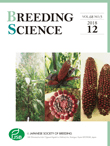
BREEDING SCIENCE
Scope & Guideline
Uncovering Insights in Plant Science and Genetics
Introduction
Aims and Scopes
- Genetic Mapping and Trait Analysis:
The journal frequently publishes studies involving quantitative trait loci (QTL) mapping and genetic association studies to identify traits related to disease resistance, yield, and quality in various crops. - Molecular Breeding Techniques:
Research on advanced molecular breeding techniques, including genome editing, marker-assisted selection, and high-throughput genotyping, is a core area of focus. - Crop Diversity and Germplasm Characterization:
The journal highlights studies on the genetic diversity of crops and the characterization of germplasm, which is crucial for breeding programs aimed at improving resilience and productivity. - Stress Tolerance Mechanisms:
Understanding the genetic basis of stress tolerance, including drought, salinity, and disease resistance, is a consistent theme in the journal's publications. - Innovative Breeding Strategies:
The journal promotes innovative breeding strategies that integrate traditional and modern approaches to enhance crop performance and sustainability.
Trending and Emerging
- Genome Editing Applications:
The application of genome editing technologies, such as CRISPR/Cas9, is a rapidly growing area of interest, with numerous studies exploring their potential for precise trait modification in various crops. - Climate Resilience and Adaptation:
Research focused on breeding crops for climate resilience, including drought and flooding tolerance, is gaining traction as climate change poses significant challenges to agriculture. - Integrated Omics Approaches:
There is an increasing trend towards utilizing integrated omics approaches (genomics, transcriptomics, proteomics) to gain comprehensive insights into the genetic and molecular mechanisms underlying important traits. - Public Perception and Regulatory Frameworks:
Emerging discussions around public attitudes towards genetically edited foods and the regulatory landscape are becoming more prominent, reflecting a growing awareness of the socio-economic aspects of breeding innovations. - Sustainable Breeding Practices:
The journal is increasingly publishing research that emphasizes sustainable breeding practices, including the use of organic methods and conservation of genetic resources, in response to growing environmental concerns.
Declining or Waning
- Traditional Breeding Practices:
There has been a noticeable decrease in publications focusing solely on traditional breeding practices, as the field increasingly leans towards molecular and genomic methodologies. - Phenotypic Evaluation Without Genomic Support:
Papers that focus exclusively on phenotypic evaluations without integrating genomic data have become less common, indicating a shift towards more comprehensive approaches that combine phenotyping with genotyping. - Single Trait Focus Studies:
Research solely focusing on single traits rather than a multi-trait or systems approach is waning, as contemporary breeding increasingly seeks to address complex traits influenced by multiple genetic factors. - Limited Scope of Crop Species:
There is a declining emphasis on certain less commercially important crop species, as the journal's focus has shifted towards major crops that have greater economic impact and breeding potential.
Similar Journals
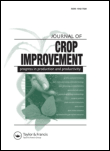
Journal of Crop Improvement
Fostering sustainable practices in agronomy and crop science.The Journal of Crop Improvement, published by Taylor & Francis Inc, is an esteemed platform dedicated to advancing the field of agronomy and crop science. With an ISSN of 1542-7528 and an E-ISSN of 1542-7536, this journal boasts a commendable reputation, reflected in its 2023 quartile rankings—notably, Q2 in Agronomy and Crop Science and Q2 in Plant Science, positioning it among the leading publications within its category. The journal encompasses a wide range of topics related to crop enhancement, sustainable agriculture, and genetic advancements, catering to the needs of researchers, industry professionals, and students alike. Although it currently does not provide open access, the Journal of Crop Improvement plays a crucial role in disseminating pioneering research aimed at improving crop resilience, yield, and quality. By maintaining a focus on innovative studies and empirical findings, the journal supports the global agricultural community in addressing the challenges posed by climate change and food security.

Czech Journal of Genetics and Plant Breeding
Connecting researchers to cultivate a greener tomorrow.Czech Journal of Genetics and Plant Breeding is a premier academic journal dedicated to advancing the fields of genetics and plant science. Published by the esteemed Czech Academy Agricultural Sciences, this journal has been available as an Open Access resource since 2002, ensuring that essential research is freely accessible to a global audience. With an ISSN of 1212-1975 and an E-ISSN of 1805-9325, it continues to disseminate high-quality studies and findings from the vibrant scientific community in the Czech Republic and beyond. The journal operates within the Scopus ranks, securing 279th place in the category of Plant Science and 282nd in Genetics, reflecting its commitment to scholarly rigor. The Journal's objectives focus on exploring innovations in genetic research and plant breeding methodologies, offering valuable insights that foster collaboration among researchers, professionals, and students alike. As the journal converges from 2007 to 2024, it remains a vital publication for those seeking to stay abreast of developments in genetic diversity, crop improvement, and sustainable agriculture practices.

AMERICAN JOURNAL OF POTATO RESEARCH
Exploring Innovations in Potato ResearchAMERICAN JOURNAL OF POTATO RESEARCH is a prominent scholarly journal dedicated to the field of potato research, encompassing vital areas of Agronomy and Crop Science. Published by SPRINGER, this journal holds an impactful presence in the scientific community, as evidenced by its placement in the Q2 quartile of both Agronomy and Plant Science categories for 2023. With a Scopus rank of #145 out of 406 in Agricultural and Biological Sciences, it offers a significant platform for researchers, professionals, and students alike. Covering diverse topics from cultivation techniques to pest management, the journal aims to advance understanding and innovation in potato science, facilitating the sharing of cutting-edge research and fostering collaboration among scholars. Accessible to a global audience, the journal encourages the dissemination of knowledge through its open-access options. Since its inception in 1998, the AMERICAN JOURNAL OF POTATO RESEARCH has been committed to contributing valuable insights that drive the industry forward and support sustainable agricultural practices.
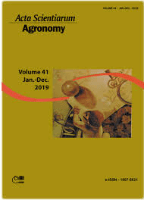
ACTA SCIENTIARUM-AGRONOMY
Pioneering insights that cultivate global agricultural progress.ACTA SCIENTIARUM-AGRONOMY is a prestigious, peer-reviewed journal published by UNIV ESTADUAL MARINGA, PRO-REITORIA PESQUISA POS-GRADUACAO, focusing on advanced research in the field of agronomy and crop science. Since its inception as an Open Access journal in 2007, it has significantly contributed to disseminating high-quality research, allowing unrestricted access to its content for a global audience. Operating from Brazil, the journal holds a notable Q2 category ranking in Agronomy and Crop Science as of 2023, validating its importance within the academic community. The journal’s Scopus ranking positions it in the 49th percentile among Agricultural and Biological Sciences, indicating a robust foundation for impactful research. With a commitment to innovation and scientific excellence, ACTA SCIENTIARUM-AGRONOMY aims to provide researchers, professionals, and students with vital insights that drive forward our understanding of agriculture and its environmental implications.

CEREAL RESEARCH COMMUNICATIONS
Empowering researchers through multidisciplinary dialogue.Cereal Research Communications is a premier academic journal published by Springer Heidelberg, dedicated to advancing knowledge in the field of agri-food science with a particular focus on agronomy, crop science, genetics, and physiology. With a strong reputation reflected in its Q2 ranking in Agronomy and Crop Science, this journal serves as a vital resource for researchers, professionals, and students alike. Published in Hungary, the journal facilitates the dissemination of innovative research and practice, covering a broad spectrum from crop genetics to physiological processes, thereby fostering a multidisciplinary dialogue among scholars. The journal has maintained a consistent publication record since its inception in 1993 and will continue its commitment to academic excellence and relevance through 2024. Although it operates under a subscription model, its contributions are crucial for those engaged in improving crop productivity and sustainability. For those looking to connect with cutting-edge research and contribute to the food security dialogue, Cereal Research Communications remains an essential platform in the field.

Plant Biotechnology Reports
Pioneering Discoveries in Plant BiotechnologyPlant Biotechnology Reports is a premier academic journal published by SPRINGER, focusing on cutting-edge research in the dynamic fields of biotechnology and plant sciences. With an ISSN of 1863-5466 and an E-ISSN of 1863-5474, this journal serves as a vital platform for disseminating high-quality studies from 2008 to 2024. Situated in Japan, it has earned commendable status within the academic community, ranking in the Q2 quartile for Plant Science and Q3 for Biotechnology in 2023, placing it among the top-tier publications in its domain. Notably, it ranks #160/516 in the Scopus category for Agricultural and Biological Sciences - Plant Science, reflecting its impact and reach in the relevant fields. While it does not currently offer open access, the journal remains an essential resource for researchers, professionals, and students eager to explore breakthroughs in plant biotechnology. Researchers contribute significant advancements that not only drive scientific understanding but also foster innovation in agricultural practices, making this journal pivotal for both academic and practical applications in the realm of biotechnology.

THEORETICAL AND APPLIED GENETICS
Connecting theoretical frameworks with practical solutions in genetics.THEORETICAL AND APPLIED GENETICS, published by Springer, is a premier journal that has significantly contributed to the fields of Agronomy, Crop Science, Biotechnology, and Genetics since its inception in 1933. With a solid reputation reflected in its Q1 ranking across multiple disciplines for 2023, this journal provides a vital platform for the dissemination of high-quality research that advances our understanding of genetic principles and their applications in agriculture and biology. The journal's indexed status and high impact factor indicate its vital role in shaping contemporary genetic research, marking it as an essential resource for researchers, professionals, and students seeking to stay at the forefront of these dynamic fields. Although it currently does not offer Open Access options, the journal ensures that quality studies are accessible through institutional subscriptions, supporting an informed community of scientists dedicated to innovation in genetics and applied biological sciences.
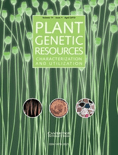
Plant Genetic Resources-Characterization and Utilization
Bridging Science and Sustainability in Plant GeneticsPlant Genetic Resources-Characterization and Utilization, published by Cambridge University Press, is an esteemed journal in the field of plant science, particularly focusing on the genetic resources crucial for agriculture and crop improvement. With an ISSN of 1479-2621 and an E-ISSN of 1479-263X, this journal serves as a vital platform for researchers aiming to advance the understanding of genetic variation and its applications in plant breeding and conservation. The journal boasts an impressive positioning within its categories, achieving Q2 in Agronomy and Crop Science, Q4 in Genetics, and Q3 in Plant Science as of 2023, which reflects its commitment to publishing high-quality research. Although primarily subscription-based, the journal is accessible to institutions and individuals seeking to stay at the forefront of innovations in plant genetic resources. Researchers, professionals, and students alike will find valuable insights into the latest methodologies, findings, and implications for sustainable agriculture and ecosystem management in its pages. As a key resource for advancing knowledge and practical applications in its field, Plant Genetic Resources-Characterization and Utilization continues to significantly contribute to the scientific community and the understanding of plant biodiversity.
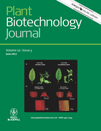
PLANT BIOTECHNOLOGY JOURNAL
Leading the way in plant science research and collaboration.Plant Biotechnology Journal, published by Wiley, is a premier open-access platform dedicated to advancing the field of plant biotechnology. Since its inception in 2003, this journal has played a pivotal role in disseminating high-quality research that enhances our understanding of plant genomics, biochemistry, and molecular biology. With an impressive impact factor and a prominent position in Q1 quartiles across Agronomy, Crop Science, Biotechnology, and Plant Science, it ranks among the top journals globally, reflecting its significant influence in the agricultural and biological sciences. Researchers and professionals can access cutting-edge studies and reviews that facilitate innovation in sustainable crop production and biotechnology applications. The journal's transition to an open access model since 2016 has further amplified its reach, ensuring that vital research is available to a global audience, promoting collaboration and knowledge sharing within the scientific community.

SABRAO Journal of Breeding and Genetics
Connecting researchers to drive genetic advancements.SABRAO Journal of Breeding and Genetics is a premier academic platform dedicated to fostering research and dissemination in the fields of agronomy, animal science, biotechnology, and genetics. Published by the SOC ADVANCEMENT BREEDING RESEARCHES ASIA & OCEANIA in Japan, this esteemed journal has an ISSN of 1029-7073 and E-ISSN of 2224-8978. Operating under open access, it aims to enhance the visibility of high-quality research while encouraging innovative advancements in breeding and genetics studies. With remarkable quartile rankings in 2023, including Q3 in Agronomy and Crop Science and Biotechnology, the journal is an essential resource for researchers, professionals, and students aiming to stay informed about the latest scientific developments. Covering diverse topics in a converged timeline from 2008 to 2024, it offers a comprehensive outlook on the challenges and advancements shaping the future of agricultural and biological sciences.